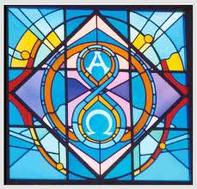Is it OK to Make Up a God of Your Own in Recovery?
Earliest A.A. Leaders Specifically Described Their Trust in God
Making Up Some “god of your own?”
Some today have made up their own gods and not-gods. They’ve called them chairs, somethings, somebodies, door knobs, light bulbs, the Great Pumpkin, the Big Dipper, and whatever they are told they can do praying to a tree or a table. In later A.A., treatment people, therapists, some AAs, and even clergy began thinking they were some new self-made, extra-terrestrial “higher power.”

Not so with four important Early AAs.
A.A. Pioneers Heard: “God either is, or He isn’t;” and they chose God!
Is it OK to Make Up a God of Your Own in Recovery? Read More »






 We have what is well known as The Seven Deadly Sins
We have what is well known as The Seven Deadly Sins
